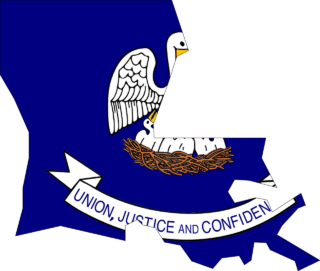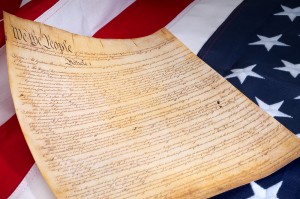 In a strengthening of company contractual rights, the Louisiana Legislature recently expanded its state non-compete statute by permitting a corporation, partnership, or limited liability company to enter into agreements with their shareholders, partners, or members, respectively, that prevent them from becoming employees of a competing company under certain circumstances.
In a strengthening of company contractual rights, the Louisiana Legislature recently expanded its state non-compete statute by permitting a corporation, partnership, or limited liability company to enter into agreements with their shareholders, partners, or members, respectively, that prevent them from becoming employees of a competing company under certain circumstances.
Continue Reading Louisiana Expands its Non-Compete Statute in Favor of Companies
Louisiana
Louisiana Federal Court Rules Information in Patent Application Remains Actionable Trade Secret Under DTSA
 The United States District Court for the Eastern District of Louisiana recently held that, under the Defend Trade Secrets Act, 18 U.S.C. § 1836, et seq., information included in a patent application remains an actionable trade secret, thereby extending the time for potential misappropriation until the patent’s publication.
The United States District Court for the Eastern District of Louisiana recently held that, under the Defend Trade Secrets Act, 18 U.S.C. § 1836, et seq., information included in a patent application remains an actionable trade secret, thereby extending the time for potential misappropriation until the patent’s publication.
DTSA
The DTSA was enacted in 2016 to expand trade secret law beyond its traditional roots as a state law doctrine, creating the first federal cause of action for trade secret misappropriation. To succeed in bringing a DTSA claim, a plaintiff must prove (1) the existence of a trade secret; (2) the misappropriation of a trade secret by another; (3) and the trade secret’s relation to a good or service used or intended for use in interstate or foreign commerce. Additionally, the owner must take reasonable measures to keep the trade secret a secret. 18 U.S.C. § 1836(b)(1).
Continue Reading Louisiana Federal Court Rules Information in Patent Application Remains Actionable Trade Secret Under DTSA
5th Circuit Provides Guidance on the Scope of Louisiana Uniform Trade Secrets Act’s Preemption Provision
 It is well known that courts interpreting their respective states’ versions of the Uniform Trade Secret Act (“UTSA”) have not uniformly applied UTSA’s preemption provision. While some states hold that their acts only preempt claims involving information that constitutes a “trade secret,” others hold that their acts also preempt claims based on information that may not technically meet the “trade secret” definition. See, e.g., Spitz v. Proven Winners N. Am., LLC, 759 F.3d 724, 733 (7th Cir. 2014) (concluding that Illinois’s UTSA preempts claims “that are essentially claims of trade secret misappropriation, even when the alleged ‘trade secret’ does not fall within the Act’s definition”); Am. Biomedical Grp., Inc. v. Techtrol, Inc., 374 P.3d 820, 827 (Okla. 2016) (holding that Oklahoma’s UTSA preempts “conflicting tort claims only for misappropriation of a trade secret” and “does not displace tort claims for information not meeting this definition” (internal quotation marks and citation omitted)).
It is well known that courts interpreting their respective states’ versions of the Uniform Trade Secret Act (“UTSA”) have not uniformly applied UTSA’s preemption provision. While some states hold that their acts only preempt claims involving information that constitutes a “trade secret,” others hold that their acts also preempt claims based on information that may not technically meet the “trade secret” definition. See, e.g., Spitz v. Proven Winners N. Am., LLC, 759 F.3d 724, 733 (7th Cir. 2014) (concluding that Illinois’s UTSA preempts claims “that are essentially claims of trade secret misappropriation, even when the alleged ‘trade secret’ does not fall within the Act’s definition”); Am. Biomedical Grp., Inc. v. Techtrol, Inc., 374 P.3d 820, 827 (Okla. 2016) (holding that Oklahoma’s UTSA preempts “conflicting tort claims only for misappropriation of a trade secret” and “does not displace tort claims for information not meeting this definition” (internal quotation marks and citation omitted)).
Continue Reading 5th Circuit Provides Guidance on the Scope of Louisiana Uniform Trade Secrets Act’s Preemption Provision
Ex-Employee Hit With Six-Figure Judgment For Violating His Non-Competition Agreement By Helping His Son Compete
 A long-running non-compete clause dispute has reached the Louisiana Court of Appeal three times. Last month, the court affirmed a $600,000 judgment, plus attorneys’ fees and costs, against an ex-employee who assisted his son’s start-up company compete with his father’s former employer. Pattridge v. Starks, No. 50,351-CA (Louisiana Court of Appeal, Feb. 24, 2016) (Endurall III).
A long-running non-compete clause dispute has reached the Louisiana Court of Appeal three times. Last month, the court affirmed a $600,000 judgment, plus attorneys’ fees and costs, against an ex-employee who assisted his son’s start-up company compete with his father’s former employer. Pattridge v. Starks, No. 50,351-CA (Louisiana Court of Appeal, Feb. 24, 2016) (Endurall III).
Referring Former Employer’s Customers To New Employer Held Violation Of Injunction, Resulting In Finding Of Criminal Contempt
 A recent Louisiana non-compete case involving two appellate decisions addresses three significant issues in non-compete litigation: 1) whether a former employee’s referral of customers to a new employer violated the employee’s non-solicitation of customer covenant; 2) the consequences of violating the covenant and court injunction; and 3) the appropriate standard of proof for contempt proceedings.
A recent Louisiana non-compete case involving two appellate decisions addresses three significant issues in non-compete litigation: 1) whether a former employee’s referral of customers to a new employer violated the employee’s non-solicitation of customer covenant; 2) the consequences of violating the covenant and court injunction; and 3) the appropriate standard of proof for contempt proceedings.
Summary of decision. Five years …
Continue Reading Referring Former Employer’s Customers To New Employer Held Violation Of Injunction, Resulting In Finding Of Criminal Contempt
“Prior Restraint” Doctrine May Preclude Enjoining A Newspaper From Publishing Misappropriated Trade Secrets
 A reporter for a business publication somehow obtained information contained in a privately held company’s confidential interim financial statements. As the reporter was about to disseminate that information in an email alert to the publication’s subscribers, the company sued, described the financials as trade secrets belonging to the company, and obtained from a Louisiana state court judge a TRO enjoining…
A reporter for a business publication somehow obtained information contained in a privately held company’s confidential interim financial statements. As the reporter was about to disseminate that information in an email alert to the publication’s subscribers, the company sued, described the financials as trade secrets belonging to the company, and obtained from a Louisiana state court judge a TRO enjoining…
Continue Reading “Prior Restraint” Doctrine May Preclude Enjoining A Newspaper From Publishing Misappropriated Trade Secrets
States Vary On Upholding Broad Non-Compete Covenants
Many recent decisions concerning the enforceability of a covenant not to compete in a strictly employment context (as contrasted with a covenant arising out of the sale of a business, which is a very different situation) seem to focus on the following three principles: (a) ascertain the permissible scope set out in all relevant legislative enactments; (b) assign to the…
Continue Reading States Vary On Upholding Broad Non-Compete Covenants